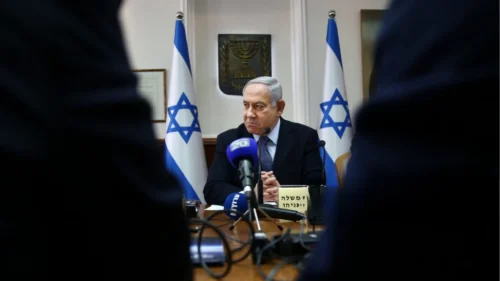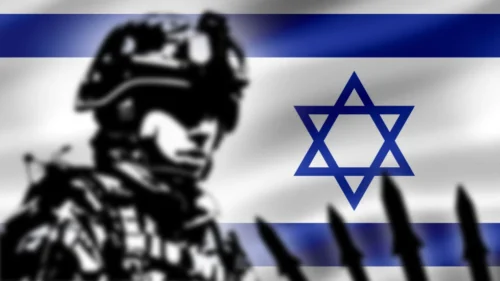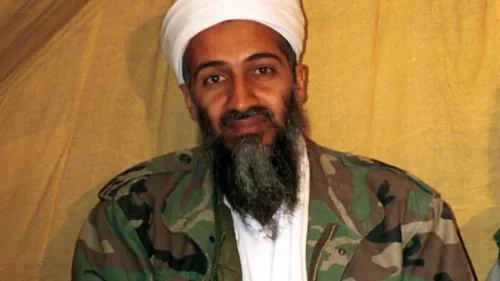Writing for The New Republic, Edith Olmstead reports that a former CIA Director “didn’t mince words” when describing an innovative method of war employed by Israel in Lebanon. “Even Leon Panetta Says Israel’s Pager Attack Is ‘Terrorism’” reads the title of her piece, followed by the subtitle: “Former CIA Director Leon Panetta didn’t mince words about Israel’s pager attacks.”
Many Israelis openly rejoiced at the audacity and efficiency of the two-day operation that left a toll of 39 dead and thousands injured. Jokes and memes circulated on social media not just about the damage done but even about the type of life-changing injuries it produced. Pennsylvanian Senator John Fetterman couldn’t suppress his glee, commenting, “I absolutely support that. In fact, if anything, I love it.”
Compare that with the assessment of Barack Obama’s former CIA Director: “When asked whether Israel’s attack constituted terrorism, Panetta was unequivocal. ‘I don’t think there’s any question that it’s a form of terrorism.’”
Is this truly a case of not mincing his words? He doesn’t say “terrorism,” but more cautiously calls it a “form of terrorism.” Are there degrees of mincing? How unminced was Panetta’s assessment?
Today’s Weekly Devil’s Dictionary definition:
Form:
- Following the Platonic tradition, the idea of something that exists beyond the empirical world of our senses.
- When used with modern concepts the locution “a form of” serves as a rhetorical ploy to remove the object from the real world and turn it into an abstraction.
Contextual note
Panetta goes far beyond any other commentator from the political establishment. But his locution, “form of terrorism,” appears designed to avoid expressing the idea that Israel should be thought of as a pariah nation, an unthinkable initiative anywhere within the Beltway. If he truly thinks this is terrorism, it would certainly demand a strong response from Washington, such as sanctions or an embargo on arms shipments.
This unique assessment by a qualified observer stimulated my curiosity. Were there any other Beltway insiders, present or past, who shared this assessment? I interrogated ChatGPT, which offered the following response:
“As of now, no major figures from the Biden administration or other prominent officials in Washington have publicly supported Panetta’s characterization of the incident as terrorism. The U.S. government continues to maintain a strong alliance with Israel, focusing on diplomatic and security partnerships, while also emphasizing a desire to avoid further escalation in the region.”
Here is where the language used to describe international relations appears to break down completely. As head of the CIA, Panetta was specifically tasked with leading the high priority global combat against terrorism. If someone of his stature can now make a statement of this kind, one would normally expect such an accusation to call into question the value of an “alliance.” As a rule, we don’t cozy up to terrorist nations. And speaking of “diplomatic and security partnerships,” isn’t it true that any partner suspected of engaging in terrorism should immediately earn the label of “pariah state?” That would presumably mean cutting off all support or even imposing sanctions. Didn’t Biden do precisely that with Saudi Arabia because of its alleged assassination of journalist Jamal Khashoggi?
The explanation becomes frankly comic when ChatGPT tells us that what guides the decision-making is the “desire to avoid further escalation.” It then adds this:
“This divide highlights the nuanced and often controversial nature of U.S. policy toward Israel, especially when military operations result in civilian harm.”
Let’s accept the description of the policy as “controversial” because clearly — and despite Washington’s valiant efforts at censoring all dissenting voices — US policy remains controversial among US residents, just as it did during the Vietnam War. Despite the docile media’s best efforts, there is no glorious national consensus of unconditional support for Israel, despite the quasi-unanimity among Congress, the White House or the State Department.
But calling the policy “nuanced” risks leaving an observer both laughing and crying. Crying, because of the unmitigated marathon of civilian deaths and casualties, along with starvation and the uncontained spreading of disease in a Gaza bombed to the point of being uninhabitable. And laughing, when considering the idea that the most powerful nation in the history of the world is rendered helpless because of a policy deemed too “nuanced.”
Historical note
The concept of terrorism made its grand debut in European history when the leaders of the French Revolution, after overthrowing the monarchy, became pathologically paranoid after they realized that not everyone was ready to align with their newly defined hyper-rational order. There were a multitude of dissidents and contrarians out there whose necks were perfectly adapted to the efficient design of a guillotine, France’s most obvious contribution to the just emerging Industrial Revolution. This post-revolutionary period is known in English as the “Reign of Terror” but in French more simply as La Terreur. This was, of course, state-sponsored violence, the opposite of what terrorism would later come to mean.
It was only towards the end of the 19th century that the idea of terrorism as a political act became associated with non-state actors seeking to overthrow the established order. Fyodor Dostoyevsky’s 1872 novel, The Demons (Бесы) describes the link between the highly intellectualized theorization of political power by anarchists and nihilists, and the planning and execution of atrocities intended to destabilize the existing order.
This period culminated with a banal but fateful terrorist act: the assassination of Archduke Franz Ferdinand, heir to the Austro-Hungarian throne, on June 28, 1914. Instead of provoking a revolution, it set off a devastating World War.
The drama of World War I and the establishment of the revolutionary Soviet Union ultimately reduced the attraction of classic terrorism for many decades. In the late 20th century, suicide bombings, particularly in the context of the ongoing Israel–Palestine conflict but also relating to “The Troubles” in Northern Ireland, gave terrorism a modern twist, changing the perception of what it was all about. Both of those dramatic contexts pitched people of two religious identities against one another. They contributed to the meme of a “clash of civilizations” — religion against religion — popularized by Samuel Huntington.
Ultimately, it was Osama bin Laden’s monumental September 11 operation that redefined our understanding of the term terrorism. Terrorism was no longer an intimate act of sabotage. It had become big, bold and very public. Moreover, it was now identified with a theological, civilizational mission. No longer a type of random, annoyingly political crime, it achieved the status of a massive act of formal warfare.
September 11 empowered US President George W. Bush to consolidate and put into active practice the neo-conservative ideology his circle of collaborators bathed in. Here was a noble cause with a universal application. Civilized people were united in the cause of defeating global terrorism. Its supposed hard-nosed rationality combined with its sense of a fanatical purpose reinforced a deep-seated belief in its historical mission. The only difference from the ideology of Dostoyevsky’s demons lay in the fact that, instead of seeking to overturn established power, it operated from the position of defending and reinforcing institutional power. It played on the combined emotions associated with political, economic and theological identity. What could have been perceived as an egregious criminal act to be brought before justice and punished turned into the illusory mission of destroying terror itself, as if terror was an identifiable enemy.
To destroy terror, the new crusaders came to embody a publicly funded and administratively managed terror of their own making, a process that is still developing. Since then, those in power, whether Republicans or Democrats, have sought to strengthen and refine their control of the instruments essential to a modern reign of terror. Censorship of their own population — now called the war on disinformation — is at the top of the list alongside varied forms of warfare and lawfare.
On the warfare side, technology has dominated. The emergence of drone warfare, privileged by the “peace president” Obama, played a major role as war came to imitate the logic of video games, with no risk to the attacker. Lawfare became a feature linked to mass surveillance mediated by the tech giants who earned money commercially and politically by amassing data on its own and other populations, in ways that Maximilien Robespierre would certainly have envied.
We now have new “forms of warfare” and “forms of lawfare.” Panetta has revealed that there are also “forms of terrorism” that we are undoubtedly learning to classify as essential tools of modern government.
*[In the age of Oscar Wilde and Mark Twain, another American wit, the journalist Ambrose Bierce produced a series of satirical definitions of commonly used terms, throwing light on their hidden meanings in real discourse. Bierce eventually collected and published them as a book, The Devil’s Dictionary, in 1911. We have shamelessly appropriated his title in the interest of continuing his wholesome pedagogical effort to enlighten generations of readers of the news. Read more of Fair Observer Devil’s Dictionary.]
[Lee Thompson-Kolar edited this piece.]
The views expressed in this article are the author’s own and do not necessarily reflect Fair Observer’s editorial policy.
Support Fair Observer
We rely on your support for our independence, diversity and quality.
For more than 10 years, Fair Observer has been free, fair and independent. No billionaire owns us, no advertisers control us. We are a reader-supported nonprofit. Unlike many other publications, we keep our content free for readers regardless of where they live or whether they can afford to pay. We have no paywalls and no ads.
In the post-truth era of fake news, echo chambers and filter bubbles, we publish a plurality of perspectives from around the world. Anyone can publish with us, but everyone goes through a rigorous editorial process. So, you get fact-checked, well-reasoned content instead of noise.
We publish 2,500+ voices from 90+ countries. We also conduct education and training programs
on subjects ranging from digital media and journalism to writing and critical thinking. This
doesn’t come cheap. Servers, editors, trainers and web developers cost
money.
Please consider supporting us on a regular basis as a recurring donor or a
sustaining member.
Will you support FO’s journalism?
We rely on your support for our independence, diversity and quality.







Comment